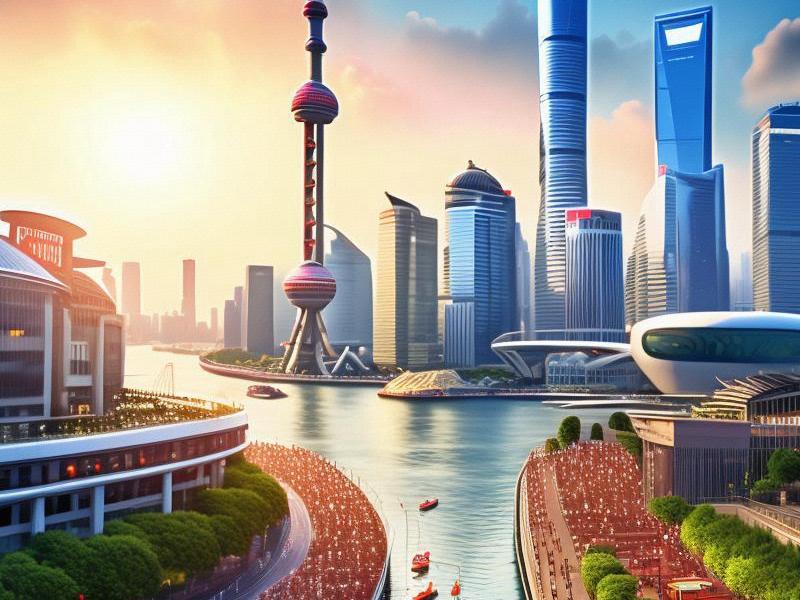
Shanghai, known as the 'Pearl of the Orient,' stands as a testament to China's economic and cultural evolution. As the largest city in China and one of the world's most populous metropolitan areas, Shanghai is a hub of international trade, finance, and culture. Its strategic location at the mouth of the Yangtze River has historically made it a key point for commerce and cultural exchange.
The city's transformation began in the late 19th century with the establishment of the International Settlement and the French Concession. These areas became melting pots of Western and Chinese cultures, giving rise to a unique blend of architectural styles, culinary traditions, and social customs that are still evident today. The Bund, with its colonial-era buildings, and the French Concession's tree-lined streets, are living museums of Shanghai's past.
In the latter half of the 20th century, Shanghai experienced rapid industrialization and urbanization. The economic reforms initiated in 1978 by Deng Xiaoping set the stage for Shanghai's resurgence as a global financial center. The Pudong New Area, developed on the east bank of the Huangpu River, is a symbol of this transformation. Once a rural area, Pudong is now home to some of the world's tallest skyscrapers, including the iconic Oriental Pearl Tower and the Shanghai Tower, which is the tallest building in China and the second-tallest in the world.
上海龙凤419贵族 Shanghai's economy is diverse, with key sectors including finance, trade, manufacturing, and technology. The city is the headquarters for many multinational corporations and is a major center for banking and insurance. The Shanghai Stock Exchange is one of the largest in the world, reflecting the city's importance in global finance.
Innovation is at the heart of Shanghai's development strategy. The city has invested heavily in research and development, fostering a vibrant startup ecosystem. Zhangjiang Hi-Tech Park, often referred to as 'China's Silicon Valley,' is a hub for high-tech industries and research institutions. Shanghai's commitment to innovation is also evident in its smart city initiatives, which aim to integrate technology into urban planning and management to improve the quality of life for its residents.
Culturally, Shanghai is a vibrant city that celebrates its heritage while embracing the future. The city is home to numerous museums, art galleries, and theaters, including the Shanghai Museum, which houses an impressive collection of Chinese art, and the Shanghai Grand Theatre, which hosts a wide range of performances. The city's annual events, such as the Shanghai International Film Festival and the Shanghai Fashion Week, attract global attention.
上海品茶论坛 Shanghai's culinary scene is another aspect of its cultural richness. The city is known for its 'Shanghai cuisine,' characterized by its sweet and savory flavors, and its street food, which offers a taste of the local lifestyle. From traditional xiaolongbao (soup dumplings) to modern fusion dishes, Shanghai's food culture reflects the city's dynamic spirit.
The city's urban development is marked by a commitment to sustainability and livability. Green spaces, such as Century Park and the Yuyuan Garden, provide residents with places to relax and enjoy nature amidst the urban sprawl. Public transportation, including the world's first maglev train, the Shanghai Maglev, and an extensive metro system, makes getting around the city convenient and efficient.
上海龙凤阿拉后花园 Shanghai's global influence extends beyond its economic and cultural achievements. The city has played a significant role in international diplomacy, hosting major summits and forums, such as the G20 Summit and the Belt and Road Forum. Its partnerships with other cities around the world reflect its status as a global connector.
However, Shanghai's rapid development is not without challenges. Issues such as housing affordability, environmental sustainability, and the integration of migrants from other parts of China are areas of ongoing concern. The city government is actively working on strategies to address these issues and ensure sustainable growth.
In conclusion, Shanghai is a dynamic and multifaceted city that embodies the spirit of modern China. Its journey from a traditional port city to a global metropolis is a story of resilience, innovation, and cultural richness. As Shanghai continues to grow and evolve, it remains a symbol of China's aspirations and a vital part of the global community.
Looking ahead, Shanghai's future is bright, with opportunities for further development in technology, culture, and international cooperation. The city's ability to balance rapid growth with sustainability and livability will be key to its continued success on the world stage.
